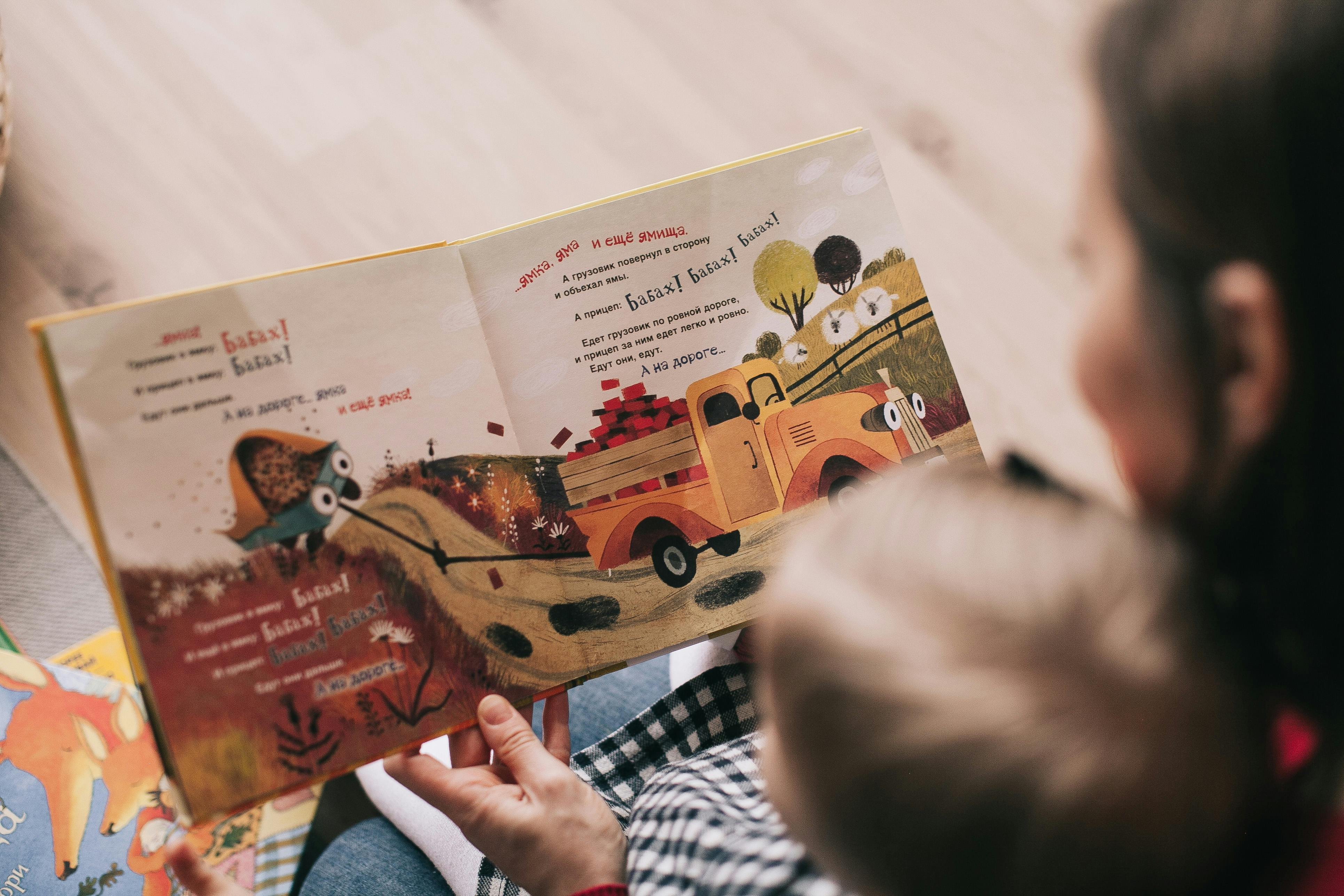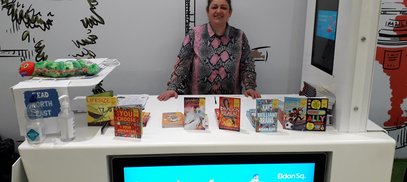To mark National Volunteers’ Week from 3 – 9 June, we spoke with North East Literacy Champion Zahra about her experience of supporting refugee families with language and literacy skills
Zahra Bazarganianpour, who lives in Gateshead, signed up to volunteer with us in February 2023 and has been helping to raise literacy levels within Gateshead’s refugee community, supporting families with vital skills whilst providing a space for community and belonging.
Overcoming language barriers can help refugee families feel connected to their community
Zahra is extremely passionate about supporting refugee families who arrive in the UK knowing little or no English, which can leave them feeling lonely, and disconnected from their new community. As a first-generation Iranian immigrant, Zahra understands how cultural and language barriers can impact the lives of those who are displaced from their home country. When she arrived in the UK 25 years ago, she felt overwhelmed by the cultural differences and found it hard to adjust, lacking the confidence to engage with others.
She has made it her mission to help other migrants, asylum seekers and refugees who are going through this experience, equipping them with the language, literacy and communication skills that will help them to succeed.
“Language skills are as essential as food and water for these families – knowing how to communicate effectively empowers them and opportunities begin to follow – it helps them to understand what’s going on around them and feel a sense of belonging”.
Zahra is a Gateshead Community Bridgebuilder with GemArts, an award-winning culturally diverse arts organisation based in the North East. She runs The Language Project, a group that meets every Tuesday morning in Gateshead for refugee families staying in local temporary accommodation. She and her dedicated team of volunteers support these families to improve their English, helping them to develop the language skills to communicate effectively and feel more empowered within their challenging and uncertain situations.
The power of a great book
Becoming a Literacy Champion allowed Zahra to further enhance the work she does, offering a wide variety of free books and resources to parents who otherwise could not afford them for their children. Our research shows that having books at home can improve a child’s life outcomes and set them up with the literacy skills they need to succeed as an adult.
One of the books that appealed to the families in her group – adults and children alike – was Don’t Feed the Coos by Jonathan Stutzman. The illustrations and simplified use of words in this children’s book proved an accessible starting point for learning the English language. Zahra introduced the story to the group as reading practice and each family took turns to read whilst Zahra acted out the scenes as a visual aid.

The story features a little girl who quickly learns, despite being warned, that feeding just one pigeon will attract more and more pigeons who want to be fed. Zahra turned this story into a powerful analogy for the experiences of migrant families, who often arrive at her group feeling overwhelmed by their negative thoughts. She says: “The negative thoughts are the same as those pigeons – the more attention you give them, the more they multiply and have power over your life”.
The families now feel incredibly connected to the story because of this added meaning, and ‘don’t feed the coos’ has become the group’s motto, a phrase they use to encourage each other during times of anxious thinking. Families look forward to the story-telling sessions and enjoy being able to share books of their own with their children at home, both parent and child learning and sharing quality time.
A safe space for connection and belonging
Zahra’s huge well of compassion and empathy are at the heart of all that she does, which is evident within moments of meeting her. Not only does the group teach vital communication skills but it also provides a safe space where families can find connection and community amongst people who understand their experiences. It provides routine and structure to families, many of whom once assigned permanent housing, leave the group with the foundational skills needed to access further education and apply for jobs.
Although she is sometimes working from early in the morning until late at night preparing for her group, Zahra doesn’t see this as going above and beyond, saying:
“I don’t get tired of doing this as it’s the people that bring me so much joy - it’s as if I’m going to visit my own family.”
Thank you for all that you do, Zahra!
Become a Literacy Champion!
If you are interested in becoming a Literacy Champion, please visit our Volunteer page for more information, or email literacy.champions@literacytrust.org.uk.
